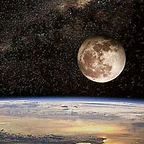Life, Death, and Purpose
Life
The day we come to life, we start on a slow and eventual journey to death.
Every breath we take, we are taking another step toward death. This is, to say the least, a frightening prospect. Nevertheless, it is the truth in its clearest form. I will die soon and so will you.
The grandeur of death had escaped me for a long time. Until one day I got into a crowd surrounding a corpse. A dead man with blood scattered all over his head, slightly disfigured, lay there like one of the stones beside it. This brought in some realizations.
Death
It’s the end of the world.
There are legends of past apocalypses and words of impending doom in almost every culture, but the one apocalypse a man can be certain about is death. It’s an apocalypse as seen by the person who dies.
This living world doesn’t matter to a dead person. It might as well not exist at all. In fact, it would be impossible to find something that matters to them.
Still, how do we accept that our loved ones exist no more? How do we accept that they don’t care about us anymore? This is where myths and legends come in.
When I did have a proper introduction to death, I already had a well-cultivated idea of an afterlife. My first ideas about the afterlife came at the end of the narration of Mahabharata.
Near the end of the epic, Pandavas are given a tour through hell before going to heaven. This was done so that they pay their rightful due for their sins before being awarded for their good conduct.
However, if somebody asked me, the tour and subsequent entry to heaven were made up. It was a means for people to console themselves. It was a false hope to keep oneself from fear when the apocalypse comes knocking at their door.
The idea is that one’s actions in life are measured by some grand, immortal entity assigned for the job. This entity will then decide whether to grant you eternal bliss or eternal misery.
However, in every major religion, one has to go through extremely high standards of ethics and morality. These sets of morality usually differ from god to god, and Sometimes between different versions of the same god. All for the sake of eternal bliss that no one has really felt. Besides being confusing, this idea is not very motivating.
Purpose
There must be something more to life’s purpose than chasing an afterlife that might or might not exist. Does it even need to have a purpose?
Biologically speaking, the one predefined purpose of human life is to create young ones to take the human race forward. If humans or any living organism fails to fulfil this purpose, the race won’t survive.
In the simplest sense, reproduction is the purpose of human life.
One may view this as a gross underestimation of the grandeur of human life. However, this gives us the freedom to choose our own purposes. We may be as creative or as dull in making our lives what we want.
There is no one to judge us, and the only parameter one needs to satisfy is set by oneself.
Maybe, this is what the phrase “aham brahmasmi” (literal translation: “I am God”) from the Upanishads means. It was in this sense that the physicist Erwin Schrödinger used the phrase in his lectures and discussions as well.
The beauty of this perspective is that it gives us immense freedom. It makes us the creators of our own world. At the same time, it is a humbling assumption that we are one with all living entities on earth.
From the tiniest bacteria to ants, skunks, sloths, monkeys, and all other species, we all share the same purpose in life.
Grandeur of Human Life
Ants die all the time, and so do humans.
We are merely another exhibition piece in this great show that evolved through chaos. An unimaginably great variety of processes that work together in intricate detail.
Treating human life as anything more than mixtures and blobs of matter, that formed through millions of years of trial and error, is sheer fantasy and human arrogance. Why should humans be any greater than the humblest of creatures that roam this earth?
Even though, this puts us in the same league as all other living creatures. The implication that we are stardust that somehow managed to take this form has a simplistic grandeur to it.
